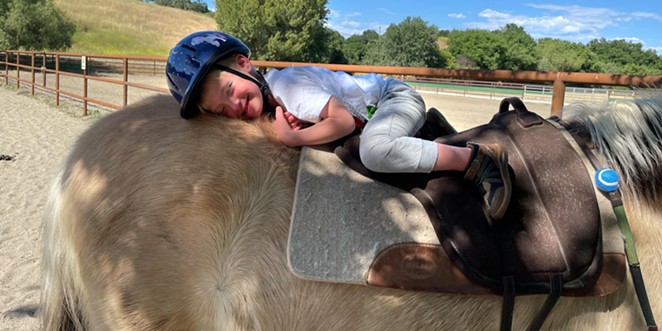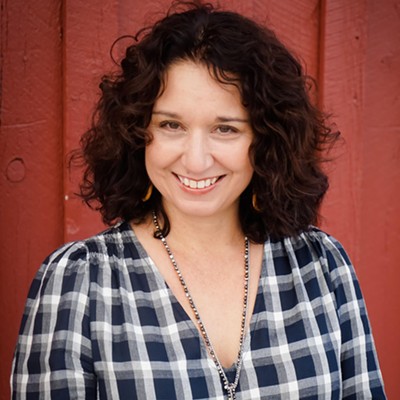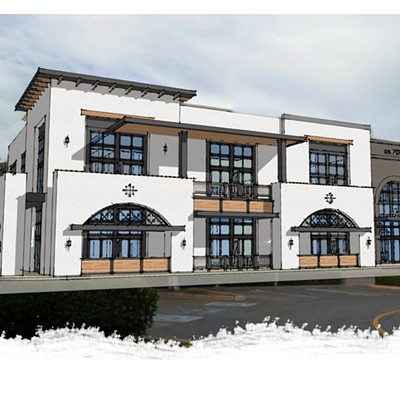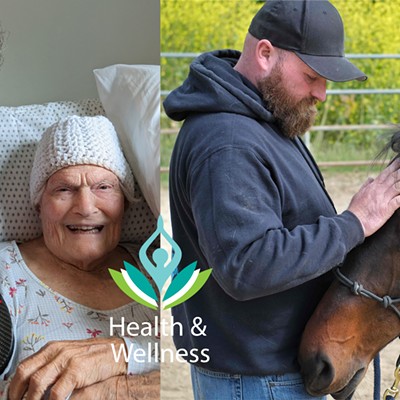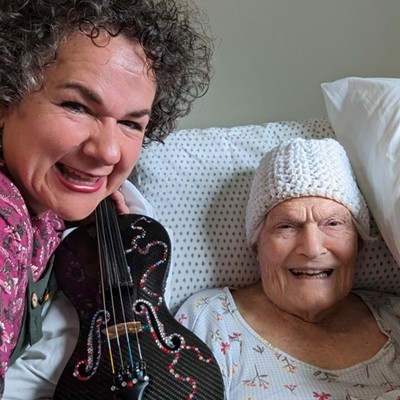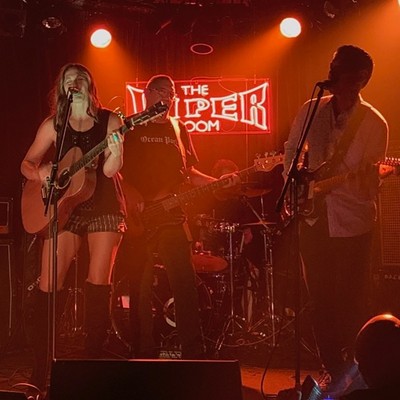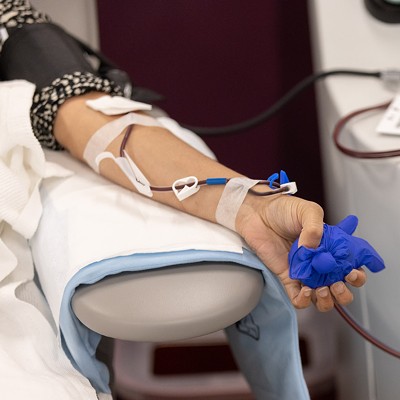Keenan Hartig struggled with substance abuse and lost his employment a month and a half before finding Healing Heroes Through Horsemanship, a Nipomo-based nonprofit that helps veterans and first responders on the Central Coast with equine-assisted programs.
Hartig—a Los Osos native and veteran—rode horses a handful of times in his life and never felt fully comfortable around the animals until enrolling in Elite Vocations, a 10-week vocational horsemanship program designed to work with veterans seeking to make a career change. In the Healing Heroes program, Hartig and fellow veterans learned comprehensive equine care, first aid, daily management, physical conditioning and exercise, and ground manners training—working on the ground with the horse as opposed to riding it.
“They teach us how horses can sense our emotions and heart rates and adrenaline. I am a person who will ruminate and stress about things and think about the traumatic [events] in my life,” Hartig said. “I feel totally better than when I went in; I was having a rough time emotionally and psychologically. It helped me calm down, relax, and find myself and believe in my capabilities.”

Healing Heroes Through Horsemanship is one of several equine therapy opportunities on the Central Coast that helps people who are working through trauma, managing disabilities, or finding new careers. After graduating from the 10-week program, Hartig is now working on a ranch in the Santa Ynez Valley feeding, handling, and grooming and has been looking at different barn management positions at ranches throughout the state.
“Coming to a field with horses was so different to me, but now feeling comfortable with it, it just opened my eyes that there’s so many possibilities out there,” Hartig said. “I could apply myself and do that, but also the fact that it’s just a very peaceful type of work. … It’s something I could do anywhere in the world.”
Elite Vocations is one of three programs offered at the Nipomo-based ranch, Healing Heroes co-founder and program director Yvette d’Unienville told the Sun. The nonprofit also hosts a two-day equine-assisted behavioral wellness program and a retired racehorse care program.
“The horses are really the therapist; they do their magic. The thought behind that is they have this wonderful ability to mirror us and show us what’s going on inside,” d’Unienville said.
Working with horses has a similar bodily effect as yoga or meditation does on people, she said, but a lot of people aren’t able to get to a meditative state by themselves.
“There’s a lot of chatter in their heads, they have anxiety—when they spend time with the horses in the pen, grooming, that connection with the horse makes all that noise go away and really helps connect their mind and body,” d’Unienville said.
The two-day program is set up like a retreat where people spend a weekend at the ranch with the animals, she said. The retreat is catered to first responders, veterans, and law enforcement, and people are grouped based on profession and experience.
“What we found working with people, without them thinking about it, is it helps with depression, anxiety, post-traumatic stress disorder symptoms, or any of those associated mental health challenges,” d’Unienville said. “We found that people who don’t want to pursue or aren’t ready to pursue traditional therapy, it opens that door to connecting [with] themselves and finding extra help.”
Elite Vocations takes a different approach to traditional equine therapy where it offers training for veterans to enter into the equine industry, giving veterans new skills while still getting the therapeutic benefit.
“Behavioral wellness is about being your best, just like going to the gym every day to improve our bodies, behavioral wellness programs help us reset communication skills and self-regulation skills,” d’Unienville said.
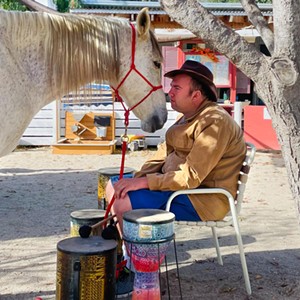
Less than 50 miles south, the Santa Ynez Valley Therapeutic Riding Program has been offering equine therapy opportunities for those facing behavioral, cognitive, or physical disabilities every week since 1990, said Morgan Kastenek, director of community engagement.
“What we really pride ourselves on is being extremely welcoming, very inclusive, an open-door policy—anyone can come and just enjoy their experiences with horses, whether they are riding or not riding,” Kastenek said.
Along with weekly lessons for individuals, the program partners with the Santa Maria-Bonita School District to allow students to spend time with horses, while being overseen by the district’s mental health specialist; works with local senior homes; and brings their miniature horse, Teacup, for visits to communities or organizations throughout Santa Barbara County, she said.
“Horses force us to check in on ourselves; horses prefer that we slow ourselves down,” Kastenek said. “There’s a lot of benefits. There’s common misconceptions that it’s just a pony ride, that you move in a circle and hop off, but there’s so much more to it.”
The program works with all ages and abilities and caters lessons to each individual’s skills and comfort level with horses, she said. Trained staff will evaluate a person’s abilities before pairing them with a horse and creating a lesson plan.
“I would say most commonly it’s an open-ended service. I think there are individuals who have been a part of the program for years on end; not only is it a recreational activity, it’s something you are constantly working on—you are constantly maintaining your strength and wellness,” Kastenek said.
The evaluation process and assigning the right horse both play a role in goal setting and helping an individual reach their goals, she said, adding that there’s noticeable differences in people each time they spend time near or on horses.
“I think that there are some teeny-tiny things that we notice, maybe a smile, sometimes on horseback the rider just lights up. It’s hard to explain,” Kastenek said. “I’ve been in therapeutic riding [for] seven years, and I still remember the first lesson I saw. It’s not a normal lesson—it’s impactful seeing the connection of these horses to these participants and what a beneficial program it is for everyone.”
Reach Staff Writer Taylor O’Connor at [email protected].


